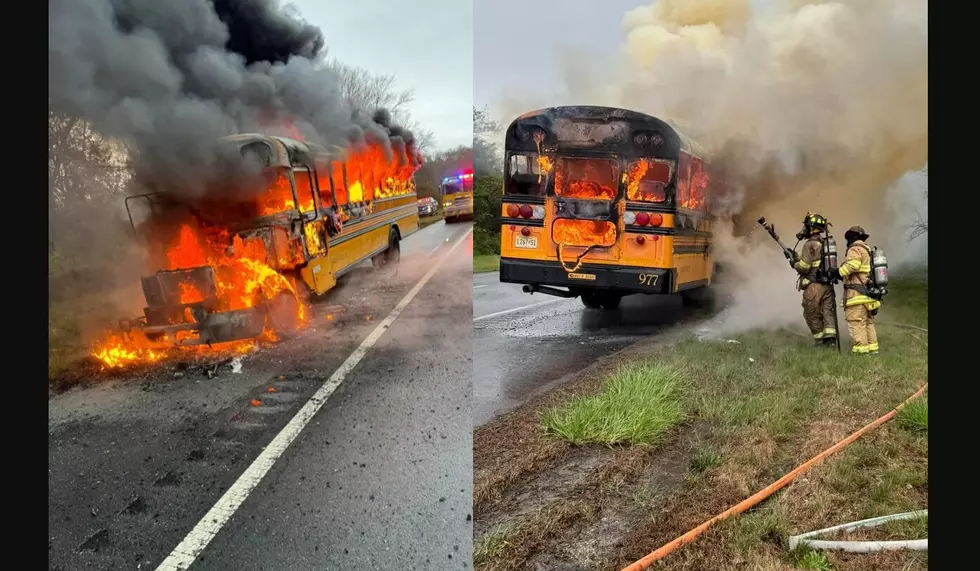
Selling a House in NJ? Here’s What You Legally Have to Disclose
If you’re looking to buy a house in the Garden State, you might not be getting all of the information about the property you'd want.
It pays to ask the right questions.
“When it comes to real estate we always hear location, location, location, but for Realtors it should be disclose, disclose, disclose,” said Rob Dekanski, a sales associate with RE/MAX 1st Advantage.
According to Dekanski, information about environmental issues may be treated differently than other concerns by some real estate agents.
He said when it comes to Superfund sites, or sites of spills, “We have to disclose it every time, because who knows how long it’s going to take to get cleaned up? Who knows if it’s going to seep into the neighbors yards? You know, it could spill into the property that you own.
"You definitely have to disclose environmental issues that are around the property, in the property, underground oil tanks, old septic systems, ... cesspools that are no longer in use.”
But the same disclosure ground rules don’t apply when it comes to other things.
“You hear about murders in homes, people passing away in homes, speculations of homes being haunted, things like that you technically don’t have to disclose,” he said.
However, Dekanski said, if the buyer does ask about those things, a Realtor is required to share anything he or she knows
“It’s not something you have to give up, up front, but if the buyer inquires, you have to do your best to find out and be truthful,” he said.
Dekanski added sometimes Realtors may not know something about a property because sellers don’t mention it.
“I try to encourage all of my home sellers to let me know about what we call any material defects, anything that’s not functioning properly that may affect the value of the property. We do want to bring all of those things up however the seller does not always have intimate knowledge of what’s wrong with the home if they’ve been living there a long time,” he said.
He said “a homeowner may be used to low water pressure and not think anything different of it, so for that reason every buyer has a right to inspect a home, and problems can then be addressed.”
He added in other instances “the sellers are unaware of some of the issues pertaining to the home, often times the seller is selling the home for somebody else, maybe a family member went into a nursing home.”
He stressed if you’re buying a home, “Don’t be afraid to ask questions. If you’re using an agent, ask that agent any concerns or questions you have up front. What you want is to go into a transaction, making an offer on a home eyes wide open as best you can. You don’t want any big surprises looming around the corner or down the road.”
According to Dekanski, examples of issues that may be hidden but should be disclosed if the seller or agent are aware of them include, but are not limited to:
- Underground tanks such as oil, propane, storage etc.
- Septic systems
- Cesspools
- Lead paint
- Termites, pests and other wood-destroying insects anything that could affect the structure of a dwelling
- Any offsite issues neighboring the home that could affect the value of the property such as being in close proximity or adjacent to super fund sites, train tracks, commercial properties, airports, cemeteries, apartment buildings, commercial properties etc.
- Environmental issues such as formaldehyde insulation, wetlands and conservation easements
- Any missing or open permits
- Water issues either past where the cause of the issue still exists or present intrusion issues including leaky roofs, wet basements, flood areas and riparian rights where the state claims part of the property as tide lands
- Any title issues such as liens, boundary disputes, easements that affect use of the property, deed restrictions and lawsuits affecting the property
- Pending tax assessments by the town for work done on the street or to the subject property
He said examples of issues that don't have to be disclosed include but are not limited to:
- Stigmatized properties where a property may be shunned for reasons unrelated to its features or physical condition
- If the occupant passed away in the home
- Whether or not a murder or suicide took place in or on the property
- Speculation that a home is haunted or cursed
- If previous occupants had any serious diseases or illnesses
- A buyer has a right to research if there are sex offenders living in the neighborhood but the realtor does not have to disclose that information if they are aware of it.
He stressed three ways to protect yourself if you are a buyer would be:
- Read through the contract of purchase carefully. It is filled with information pertaining to your rights as a purchaser and resources to access information you may wish to know.
- Ask for a seller's disclosure statement. While these aren't mandatory for a seller to complete by law, a home owner who has intimate knowledge of the home they are selling and has nothing to hide should have no objection to completing one.
- You have a right to do your due diligence. Feel free to go to the township to inquire about open permits, easements, the school district children in that neighborhood belong to etc. You also have an inspection period where you should hire a licensed home inspector to check the home from top to bottom. They will search for structural issues, insect infestation, radon gas and any other hazards that may be affecting the home in question so you know what you are getting yourself into if you go through with the purchase of this home.
Also from New Jersey 101.5:
More From WPG Talk Radio 95.5 FM










